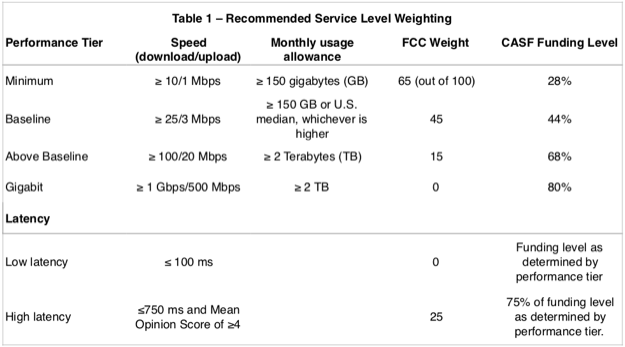![By Joker Poker [CC BY 2.0 (https://creativecommons.org/licenses/by/2.0)], via Wikimedia Commons](https://www.tellusventure.com/images/2017/3/gambling_table.jpg)
The main event is finally under way. By yesterday’s deadline, thirteen organisations filed comments regarding how the California Public Utilities Commission should spend $300 million in new California Advanced Services Fund (CASF) money (plus however much more is left in the kitty) on broadband infrastructure subsidies. I haven’t read through them all yet – if you’re interested, I’ve posted them all here – but a top line glance shows that service providers, including the big incumbents who expect to use CASF as a private piggy bank, have a lot to say.
So do regional broadband consortia, and organisations that usually jump in on broadband issues. Yesterday’s round of comments focused mostly on broadband infrastructure grant rules, including the new $5 million line extension program that cable companies lobbied for – they want to evade CPUC oversight by laundering grant money through homeowners.
I drafted and submitted the Central Coast Broadband Consortium’s comments (with much appreciated distribution help from Trish Steel at the Mendocino Broadband Alliance). Our one big recommendation is to base infrastructure grant amounts on the level of service that the subsidised infrastructure will provide…
The CCBC recommends that the Commission…add one further criterion for determining the level of funding: the service level that a proposed project is capable of delivering and that the applicant commits to offering and fulfilling for at least two years following project completion.
In the Connect America Fund II auction phase, the Federal Communications Commission (FCC) has established “technology-neutral service tiers” and other service level metrics that will determine project eligibility and, effectively, the level of funding…the weighting used by the FCC for the various speed tiers can be applied to funding level decisions made by the CPUC. The CCBC recommends setting a base funding level of 80% of project costs and applying the FCC’s weighting criteria…

We made a similar recommendation for the line extension program, with the addition of suggested cost sharing and oversight requirements for the ultimate beneficiaries – the Internet service providers, including cable companies, who will own the infrastructure and bill homeowners for the service it supports.
Comments were also due on proposed changes to the CASF-funded regional broadband consortia program. California lawmakers approved a long wish list submitted by AT&T, Frontier and cable companies such as Comcast and Charter Communications that use a front organisation to do most of their public lobbying (the real lobbying, involving millions of dollars in cash payments from telecoms companies to legislators, is done behind closed doors of course). One of the lesser items on that list was restrictions on what regional consortia can do with the CASF money they get. We urged the commission not to take a narrow view of what those restrictions mean.
I’ll more to say about all comments as the week goes on and I make my way through them. Rebuttal comments are due in a couple of weeks.
